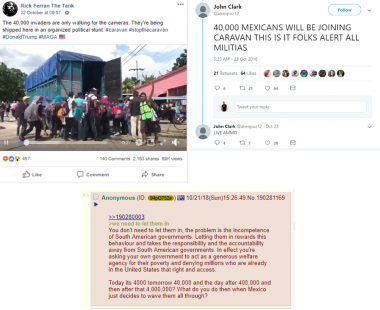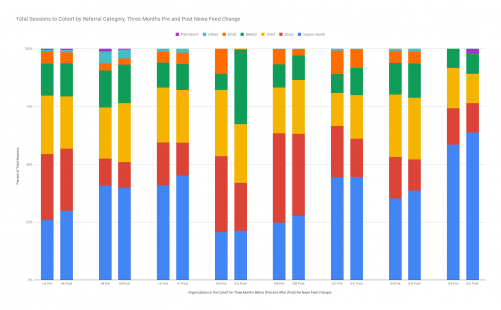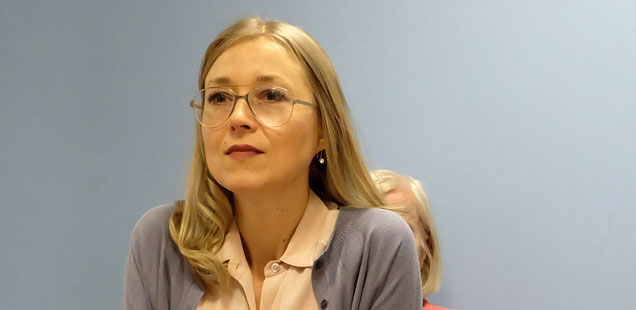False information about caravan animating militia activity at the border
Information Disorder Update: October 26, 2018 Supporters of a private militia are spreading misinformation on social media about the Central American migrant caravan. One baseless claim asserts that “42,000 immigrants” intend to join the caravan. This warning appears to have reached tens of thousands of users on social media. Related posts on Twitter gained thousands of retweets; […]
False information about caravan animating militia activity at the border Read More »




